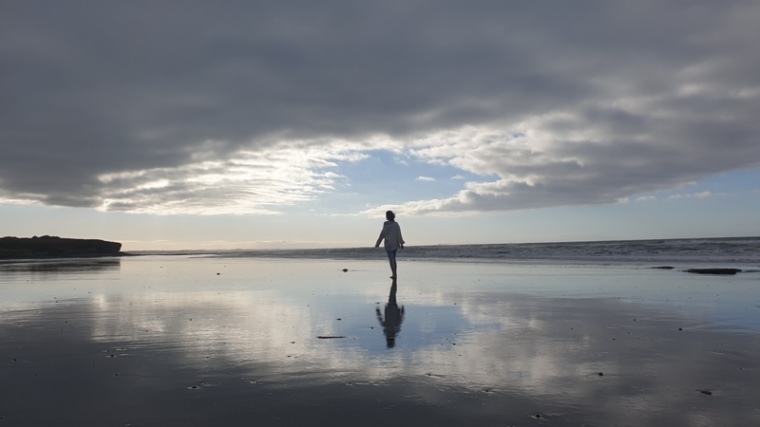
For a long time now I have walked around with a quiet pocket of grief.
Like most human beings, life has been a mix of joy and sorrow. It’s just been a little heavy on the sorrow side. And perhaps for a little longer than one would hope.
In the past few years, I’ve moved country twice, seen grandparents die in front of me, endured months of workplace bullying, lived in a place of daily violence and riots, observed women being beaten or tortured to death just down the road, lost my job due to health, been torn from the place I lived and the people I knew without so much as a goodbye, waded through the shards of a broken relationship, landed at rock bottom in every possible way, and slowly, painstakingly tried to rise while wearing a brand new garment called C-PTSD.
Some of my losses have been restored. Some have not.
As with most people’s stories, 2020 proved to be a wave of turmoil that uncaringly swept away much that had been rebuilt, resulting in further job insecurity, financial strain, isolation, and mental and emotional toll.
As the year of Covid finally began to settle, I emerged a little shaky, a little stronger, a little wiser and a little more reliant on anxiety meds.
Then came the sudden death of a dear friend.
And once again, my world shattered with the blow of loss.
I dropped out of existence for a good two weeks. Disappeared from social media, cancelled every commitment for the rest of the month, cried in bed for days. I couldn’t think, let alone function in society.
It took me some time to figure out why this loss hit particularly hard.
Maybe it was just one too many hits within a short timeframe. Maybe it landed around a “low” point of the C-PTSD cycle. Looking back, I know a huge part of my response was because this friend had been a key presence in my own story of suffering.
He was what I can only term “a grief companion”.
He had known deeply personal and tragic loss, and he intuitively recognised and accepted the sorrow that pulsed beneath the surface of my own being.
His own suffering allowed him a depth of empathy and insight that was unusual among my peers.
He had no qualms about my sadness. It saddened him to see my pain, but his response was not to try and fix it.
Instead, he quietly stepped into that place and held the grief with me.
I was less open about my struggles back then.
Less aware of what C-PTSD actually meant, and more inclined to hide the struggle or to brush off the truth of just how dark a shade the night can hold.
But this friend had seen my grief. His own losses were mirrored in my sorrow. And somehow, in the midst of our individual efforts to rise, we walked with mutuality.
Losing him was a blow I did not expect.
Nor did I know it would stun me the way it did.
What do you do when the person you have shared such sadness with, is now the loss behind that sadness? When their absence muffles your world in a whole new layer of grief that you now have to face without them?
Some griefs do not get laid to rest.
They carve their way into our stories and we learn to carry them with us to the end.
There’s no set formula for how best to work through grief, and really there’s no actual end. Sometimes all we can do is look grief in the eye and acknowledge it.
It can slow our steps, pause our drive, destroy our passion, divert our path in a completely different direction, or even render us ill with the force of its pain.
But grief cannot stop us from living.
A few nights ago, I watched Nightbirde take to the stage with an original song.
She blew everyone away – not only with her decadent voice and her heart-wrenching story of cancer (she sang, knowing she has a 2% chance to live), but also with her profound statement afterwards.
Observing how moved the audience was, and seeing they were almost surprised at her ability to smile and sing, despite her great suffering and the ever-looming presence of death, she said this:
“You can’t wait until life isn’t hard anymore before you decide to be happy.”
Pain and suffering and grief. These are not things to apologize for, or to label ourselves with.
And we don’t have to wait for them to leave before we live.
Sometimes they are a very heavy part of our journey. Sometimes they overwhelm us. Sometimes they heal – and only time can tell how long this takes – and sometimes we never fully shake off the tint they’ve deposited on our painting.
It’s been 8 months since he passed, and I still find grief lurking in the corners.
Grief is here. Grief is everywhere.
It is a natural and necessary part of life. It is not a friend, but it’s also not something to hide or distort or pretend isn’t real.
At the end of the day, grief exists. But so do I.
And I…
I cannot stop chasing the light.

Emma is an Italian-South African with a New Zealand passport and an international heart. She spent years training student choirs and co-running a puppeteering business, before working for a humanitarian organisation in New Zealand (7 years) and Papua New Guinea (3 years). Currently a nomad living between various countries and towns, Emma's deep joy is in writing, music, cooking up an Italian storm, and taking time to listen to people’s stories.
Read Emma's creative expressions at http://www.girlkaleidoscope.wordpress.com or https://pngponderings.wordpress.com/2016/09/02/finding-the-beauty/
Emma’s previous articles may be viewed at www.pressserviceinternational.org/emma-mcgeorge.html